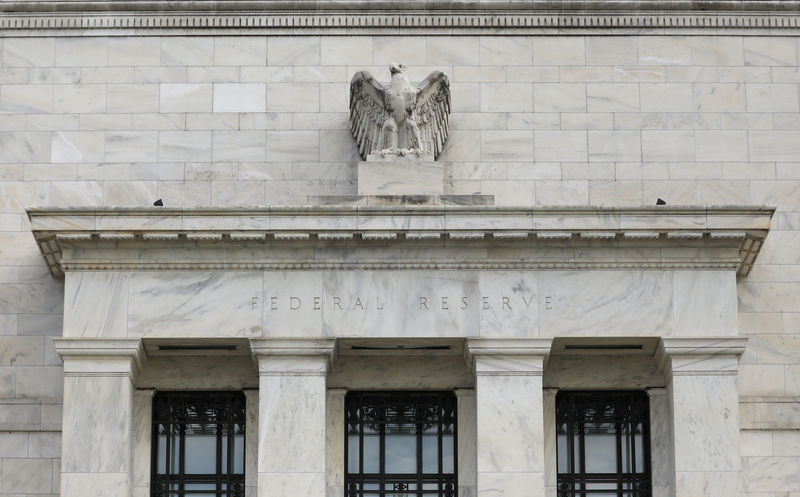(Bloomberg) -- The Federal Reserve may hold interest rates near zero for three or more years, and its balance sheet will soar above $10 trillion as policymakers seek to revive the U.S. economy from recession, economists said in a Bloomberg survey.
Just over half the 31 respondents to an April 20-23 poll predicted the target range for the federal funds rate, now at 0-0.25%, won’t move up until at least 2023. Another 22% said not before 2022.
Asked where the balance sheet would peak, the median estimate was $10 trillion, and the average $10.9 trillion.
The balance sheet has already reached $6.57 trillion, as of April 22, driven by $1.64 trillion in purchases of Treasury and mortgage-backed securities since March 11 to help calm credit markets that came to a near stand-still last month. The Fed is also soon to launch a number of credit facilities -- with the ability to lend trillions more -- aimed at directly and indirectly aiding companies, states and cities.
No Change
Respondents had limited expectations for any substantial changes when the Federal Open Market Committee holds its next policy meeting April 28-29. Large majorities, 90% and 87%, said they didn’t expect policy makers to offer any additional guidance on how long they intend to keep rates near zero, or on the future pace of large-scale asset purchases.
The Fed “will emphasize they are able and prepared to take more measures as needed, but we do not anticipate any new measures next week,” Kathleen Bostjancic, chief U.S. financial economist at Oxford Economics, wrote in her responses. “Nor do we expect them to provide more guidance than they can given the vast uncertainties that surround the outlook.”
On March 15, the FOMC said it will keep rates low until the economy had weathered recent events and was on track to achieve its goals of maximum employment and price stability. On March 23, officials declared they would purchase Treasuries and MBS “in the amounts needed to support the smooth functioning of markets.”
Yield-Curve Control
Economists more narrowly predicted officials would not, at this meeting or later, shift some asset purchases in order to target specific yields on certain Treasury maturities -- a policy known as yield-curve control.
They gave high marks to the Fed and Chairman Jerome Powell on his handling of the crisis so far. Asked about the scope of the central bank’s emergency lending facilities, 90% said the Fed had gotten its response about right. In a separate question, just 24% said the Fed should not have extended its emergency purchases to include junk bonds because it would contribute meaningfully to future risk-taking by investors.
On Powell, 88% of the economists thought he had done an excellent or good job at communicating the Fed’s actions in the crisis.
Respondents ranked the top threats to a post-virus economic recovery. No. 1 was a too rapid a removal of restrictions on social mobility and economic activity, followed by the likelihood that many Americans may not resume normal behavior even after those restrictions are lifted.
